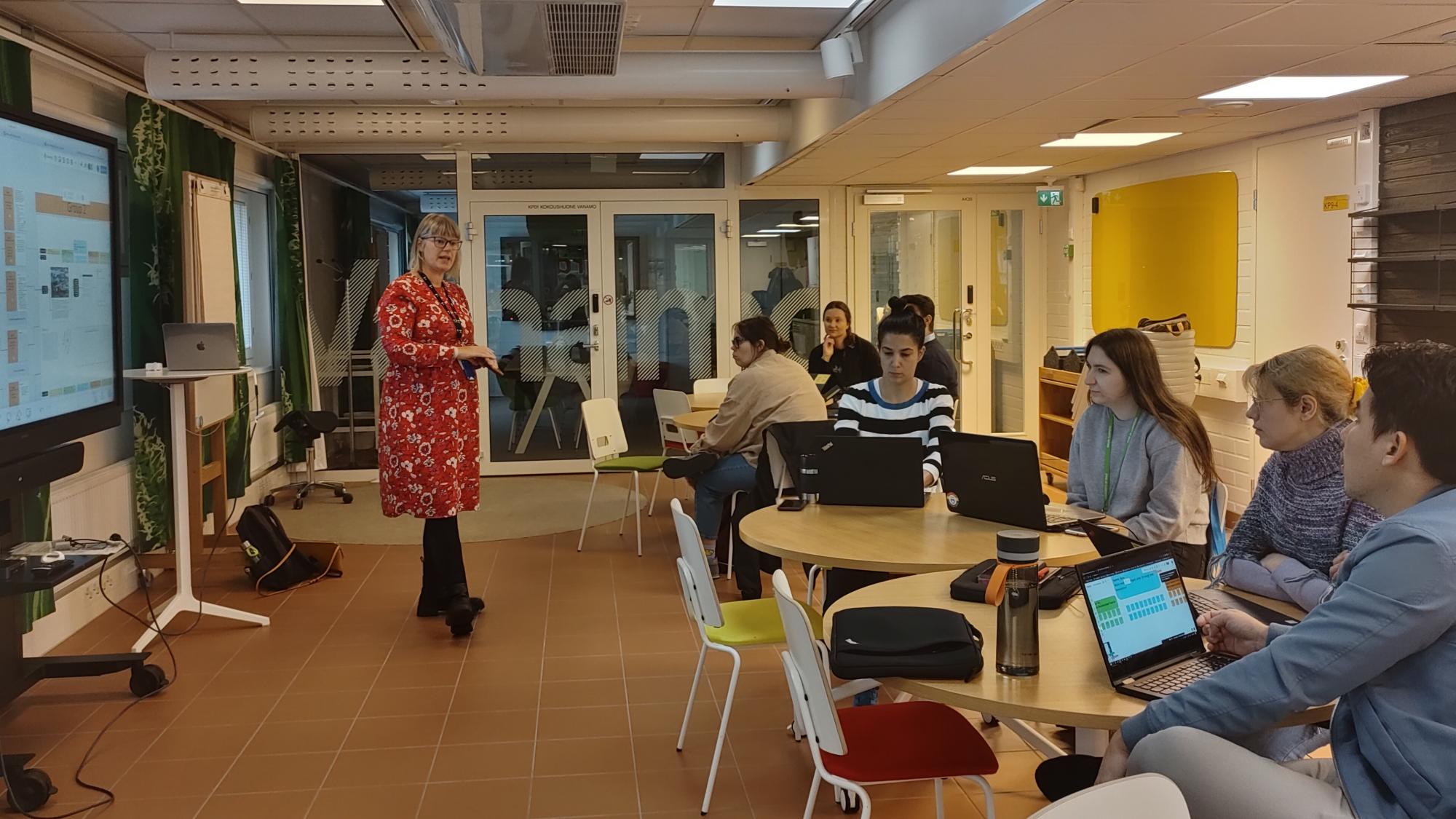The resilient future scholar and T-shaped competencies – interview with GenZ visiting scholar Dr. Annmarie Ryan

During her visit Ryan facilitated a workshop, “How resilient am I?” for postdoctoral researchers and PhD students at the University of Oulu Science Garden. In the workshop the participants were, through the given tasks, invited to reflect upon their personal T-shaped research competencies - developing curiosity, empathy, understanding and appreciation of other disciplines.
Interdisciplinary work breeds innovation
Ryan is currently a Senior Lecturer in Marketing at the Kemmy Business School, and her present research focuses on sustainable markets. Her research draws from the potential of interdisciplinary work: how people from different backgrounds come together to collaborate and innovate solutions that support future markets where sustainability is the norm.
“For me, it is the thread of the interdisciplinary work that has been brought through all the time. Ever since my PhD, I have been interested in interorganisational relationships and interdisciplinary cross organisational interactions,” Ryan comments.
The topic of Ryan’s PhD was the relationship between a corporation and a nonprofit arts organisation. Early on, Ryan observed that it was not simple for people from different backgrounds to come together and collaborate. However, Ryan notes that interdisciplinary work is key in promoting innovation.
You might have the missing piece of the puzzle
The workshop that Ryan facilitated was grounded on the idea that interdisciplinary work is needed to create a sustainable future. The participants were first asked to reflect on their own expertise and then reflect on how their own expertise might help to solve a challenge presented to them.
In Ryan’s view, it might take a journey for someone to realise how their expertise could be used to solve a novel problem.
“Each of us might have the missing piece of puzzle, but we do not know that yet,” Ryan says.
According to Ryan, the problems are often framed in such a way that only certain disciplines feel they have the legitimacy to solve the problem. In reality, these disciplines might not be the right ones to solve the problem at all. At the very least, input is needed from other disciplines, and in this way, people can give voice to their own fields of expertise.
“We need all hands on deck. We have an emergency, so we need everybody to be able to solve as many problems as possible. And my goal would be that we would have more disciplines involved in thinking about the future and how we might realise it,” Ryan says.
During the workshop, the participants were presented with the case of self-organised refugee centers that grew around Calais, France. The gist of the case was that since there were no authorities in charge, challenges in coordination were emerging, as people were building pathways, shops, churches and schools that had not existed before.
“My question for the participants was that what is this case for you. Whether you are a data analyst, a geographer, a service designer or marketer, each of us can frame the challenge in different ways. Therefore, there is not just one problem but a multiplicity of problems, so to speak,” Ryan comments.
Ryan explains that the overall experience of hosting the workshop was a success. The Science Garden was a neutral setting and thus helped to emphasize the interdisciplinary theme of the workshop. Ryan was also able to use the workshop to test an online tool Miro in the organisation of the workshop – she had previously used it in online settings only. In the end, the workshop became a prototype and basis for future research as well.
The GenZ project is an investment for the future
In her own research, Ryan is looking at how digital technologies are shaping future markets and researchers’ practices. The GenZ project, which goal is to strengthen the human capabilities in the digital era, therefore caught her interest. Ryan points out that we indeed need to take time to describe the future skills and competencies, so that they can contribute to our future and sustainable practices.
“I was really drawn to the GenZ programme, because to me it seemed like an investment in the future researcher and scholar,” Ryan explains.
In Ryan’s view, a resilient future researcher has a “T-shaped” profile. The T-shaped profile means that a researcher has the essential skills and expertise in their core domain area; in addition to that, the researcher also has softer skills across the “horizontal bar,” such as empathy, curiosity – and appreciation for other disciplines.
One of the goals of the workshop was to enable the participants to practice these softer skills and reflect on how much these skills are a part of what they do overall. Ryan also wanted the participants to recognize the importance of these skills and bring the literature of the T-shaped profile into practice.
Readiness for innovation in education in Oulu
Besides facilitating the workshop, Ryan says that one of the highlights of her visit was the opportunity to network with her colleagues in Oulu.
“This is my fifth time coming to Oulu, and I love coming back here because I see great openness to innovation in education. There is a sense of openness and flexibility within the structures there to be able to try new things,” Ryan says.
…
The GenZ project has recently opened the visitor programme in 2023. More information can be found here: https://www.oulu.fi/en/news/funding-international-genz-visiting-scholar-programme